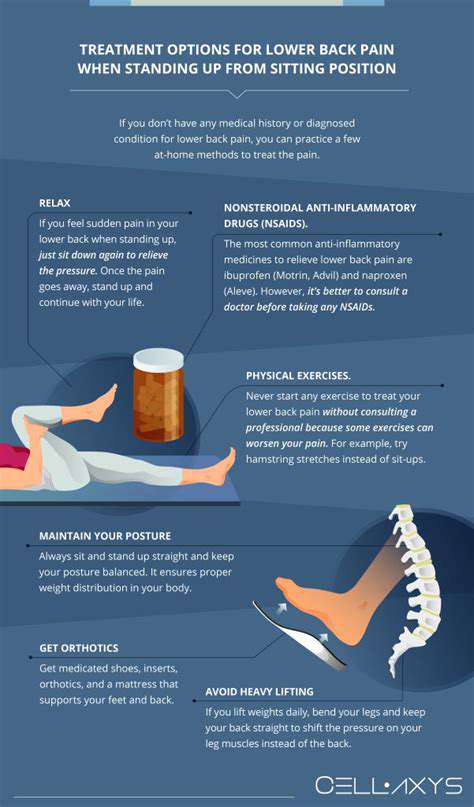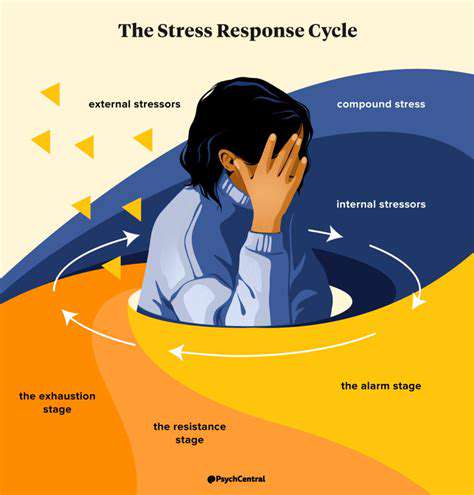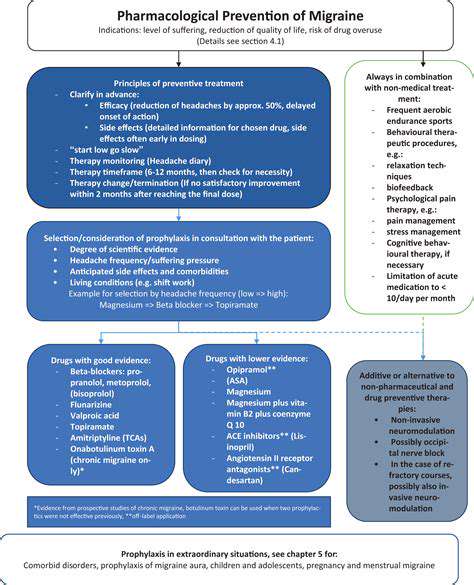The Role of Hydration Tracking in Headache Management
Benefits of Using Hydration Tracking Apps
For individuals battling frequent headaches, hydration tracking apps offer a customized solution that goes beyond guesswork. These innovative tools analyze your daily fluid consumption patterns, highlighting potential shortfalls that could be triggering your discomfort. By maintaining a detailed log of your water intake, you'll quickly recognize if dehydration habits correlate with your headache episodes. Modern apps don't just track - they actively engage with personalized alerts that help maintain consistent hydration throughout your busy day.
The most advanced hydration trackers consider multiple personal factors including your exercise routine, body composition, and local weather patterns. This sophisticated analysis provides precise hydration targets tailored to your unique physiology. Such precision helps avoid the twin pitfalls of insufficient hydration and water overload, both known to exacerbate headache symptoms. When used consistently, these apps become powerful allies in reducing both the frequency and intensity of headaches.
Connecting Hydration to Headache Triggers
These digital tools excel at revealing hidden connections between your hydration patterns and headache occurrences. By cross-referencing your water intake logs with headache episodes, clear patterns often emerge. You might discover, for instance, that headaches reliably follow days when your afternoon water consumption drops below a certain threshold. This empirical evidence makes it easier to establish concrete hydration goals that directly impact your wellbeing.
Many premium hydration apps incorporate additional tracking features that monitor dietary choices, sleep quality, and physical activity levels. This comprehensive approach provides crucial context for your headache patterns. You might identify surprising connections - perhaps headaches occur more frequently when poor hydration combines with certain food choices or particularly stressful workdays. These multidimensional insights empower you to develop truly effective, personalized headache prevention strategies.
The true value lies in the long-term data collection. Over weeks and months of consistent tracking, you'll accumulate compelling evidence about what hydration practices work best for your body. This knowledge transforms hydration from a guessing game into a precise science, with measurable impacts on your headache frequency and severity.
Beyond Hydration: Other Factors Influencing Headaches

Beyond Hydration: Electrolyte Balance
Proper hydration involves more than just water intake - it requires maintaining delicate electrolyte balances. Minerals like sodium and potassium conduct electrical impulses that keep your nervous system functioning properly. When dehydration disrupts these mineral levels, the resulting imbalances can trigger severe headaches alongside muscle cramps and fatigue. During periods of heavy sweating or illness, consider supplementing with electrolyte-rich foods or beverages to maintain this crucial balance.
The Role of Nutrition
Your dietary choices significantly influence both hydration status and headache susceptibility. Certain foods naturally boost hydration while providing headache-fighting nutrients - watermelon and cucumbers, for instance, offer high water content alongside magnesium and potassium. Conversely, processed foods high in sodium and preservatives can actually promote dehydration. Building meals around whole, water-rich foods creates a nutritional foundation that supports optimal hydration and may reduce headache frequency.
Importance of Rest and Recovery
Sleep quality dramatically affects your body's hydration mechanisms. During deep sleep cycles, your brain actually shrinks slightly, allowing cerebrospinal fluid to flush out toxins that accumulate during waking hours. Chronic sleep deprivation disrupts this cleansing process while simultaneously impairing your body's ability to regulate fluids properly. Establishing consistent sleep routines and creating a restful bedroom environment can significantly improve both hydration and headache patterns.
Stress Management Techniques
Modern stress triggers physiological responses that directly impact hydration. The fight-or-flight response increases respiration and perspiration rates, accelerating fluid loss. Chronic stress keeps cortisol levels elevated, which can interfere with proper fluid regulation and trigger tension headaches. Simple interventions like box breathing exercises or short meditation sessions can interrupt this cycle, helping maintain better hydration balance throughout stressful periods.
Environmental Factors
Your surroundings constantly influence hydration needs in ways we often overlook. Air-conditioned environments, while comfortable, can be surprisingly dehydrating due to reduced humidity. Frequent travelers face particular challenges, as airplane cabins typically maintain humidity levels below 20% - drier than most deserts. Proactive hydration strategies become essential when environmental conditions promote rapid fluid loss.
Individual Variation in Hydration Needs
Hydration requirements vary dramatically between individuals based on numerous factors. A construction worker in Phoenix needs significantly more fluids than an office worker in Seattle. Certain medications like diuretics or antidepressants can dramatically alter hydration needs, as can medical conditions like diabetes or kidney disorders. Rather than following generic hydration advice, pay close attention to your body's unique signals and adjust accordingly.
Monitoring Hydration Status
Developing awareness of subtle hydration cues can help prevent headaches before they start. Morning urine color provides one of the most reliable indicators - aim for pale lemonade rather than dark apple juice. Other warning signs include persistent fatigue, difficulty concentrating, or sudden food cravings (often misinterpreted as hunger when actually signaling mild dehydration). Keeping a simple hydration journal alongside your headache log can reveal important patterns over time.









